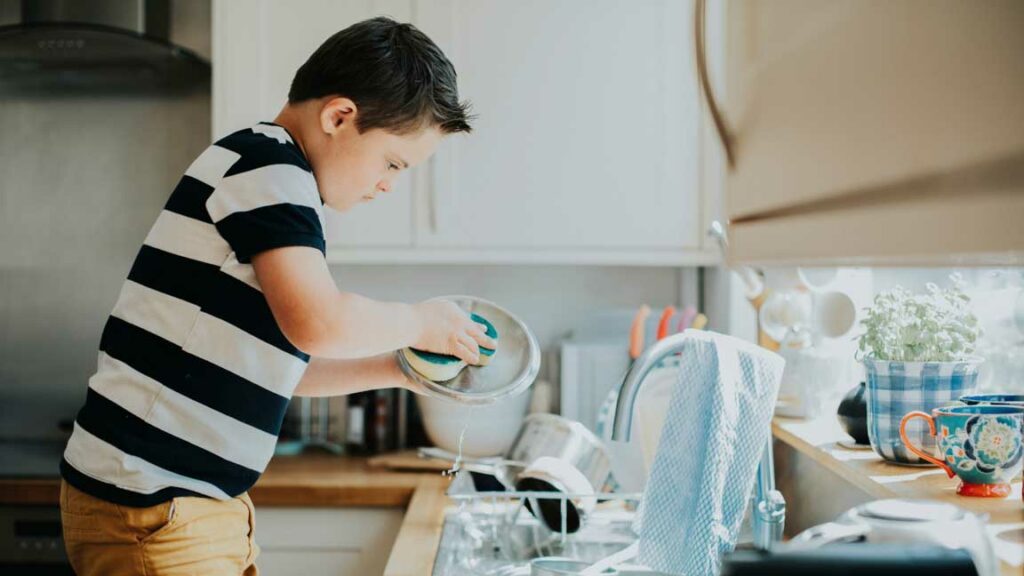Essential Skills Development Activities for Children at Home
Teaching essential skills through fun activities can make the learning process enjoyable and memorable for kids and young adults. These skills lay the foundation for a child’s ability to navigate future challenges, social situations, and personal responsibilities effectively. By integrating educational activities into daily routines at home, parents can make learning both fun and impactful, fostering a love for discovery and a strong sense of independence from an early age.
Fun Learning Activities for Everyday Skills
Toileting and Showering Activities
Hygiene is a fundamental aspect of a child’s health and well-being. Teaching these skills through enjoyable activities not only emphasizes the importance of cleanliness but also encourages self-care practices early on. How children learn about personal hygiene impacts their lifelong habits, making it crucial to introduce these concepts in a positive, engaging manner.

- Treasure Hunt for Bath Time: Transform bath time into an adventure by hiding waterproof toys for children to find. This not only entertains but teaches them the importance of thorough washing.
- Soap Making Workshop: Involve children in making their soap with various molds, colors, and scents. This hands-on activity encourages them to take ownership of their personal hygiene in a fun way.
- Interactive Toileting Games: For girls, simulate diaper changing for dolls to discuss hygiene practices. For boys, use colored cereal rings in the toilet as targets to improve aim and make toileting fun, while subtly teaching the basics of personal care.
Safety Awareness Games
Understanding safety and emergency preparedness is vital for children’s development. It empowers them to feel confident and secure in their ability to handle unexpected situations. Through interactive and practical activities, children can learn about safety in a way that resonates with them, making the lessons more memorable and effective.
Safety Scavenger Hunt: Organize a scavenger hunt that helps children identify and understand the importance of safety tools like smoke detectors and first-aid kits. This can make them more aware of their environment and its safety features.
Role-Play for Safety: Create engaging role-play scenarios that allow children to practice what to do in various emergencies. Using costumes and props can make this learning process engaging and memorable.
Improving Social Interaction Skills
Understanding safety and emergency preparedness is vital for children’s development. It empowers them to feel confident and secure in their ability to handle unexpected situations. Through interactive and practical activities, children can learn about safety in a way that resonates with them, making the lessons more memorable and effective.
- Board Games for Social Skills: Select or create board games that simulate social situations, requiring players to express emotions, share, and cooperate. Games like “emotion charades” can significantly enhance empathy and understanding among peers.
- Empathy Building Activities: Encourage activities like emotion charades, where children act out and guess different feelings, fostering a deeper understanding and empathy for others’ emotions.

Creative Meal Preparation for Kids
Participating in meal preparation not only teaches children about nutrition and cooking but also instills values of responsibility and teamwork. These activities provide practical life skills and foster a sense of accomplishment, as children learn to contribute to their family’s daily life in meaningful ways.
- Cooking Class Challenge: Introduce cooking as a fun competition, perhaps mirroring a TV show format, to teach basic cooking skills and teamwork.
- Garden to Table: If space allows, engage children in growing ingredients. This not only teaches them about where food comes from but also involves them in the cooking process, making it more rewarding.
Organizational Skills Through Clean-Up Games
Organizational skills are essential for personal and academic success. Teaching children to clean and organize through fun activities can turn these often-overlooked chores into enjoyable habits. This not only helps maintain a tidy environment but also promotes discipline and responsibility.

- Clean-Up Race: Turn cleaning up into a game where the quickest participant wins a prize. This encourages children to see cleaning as a fun and integral part of daily life.
- Sorting Game: Make organizing toys or laundry a game with color-coded bins or categories. This can teach children about sorting and organizing, making them more independent.
Financial Literacy and Responsibility for Young Adults
As children grow into young adults, their development focuses on independence, decision-making, and social etiquette. Engaging them in activities that simulate real-life responsibilities prepares them for adulthood, teaching them about budgeting, safety, and social interactions in a practical and impactful way.
- Budgeting for a Meal: Challenge young adults with a fixed budget to plan, shop, and cook a meal. This teaches financial planning, shopping, and cooking skills in a practical setting.
- DIY Home Safety Audit: Guide them through identifying potential hazards at home and developing a plan to address them, teaching responsibility and awareness.
- Social Etiquette Dinner Party: Organizing and hosting a dinner party can be a fantastic way for young adults to practice planning, cooking, and social etiquette, enhancing their interpersonal and life skills.
Conclusion
Incorporating these skill-building activities into the home environment plays a critical role in a child’s holistic development. Each activity is designed not just to teach a specific skill but to imbue children with confidence, empathy, and a sense of responsibility. By understanding the why and how behind each activity, parents can more effectively guide their children toward becoming well-rounded, capable individuals.
